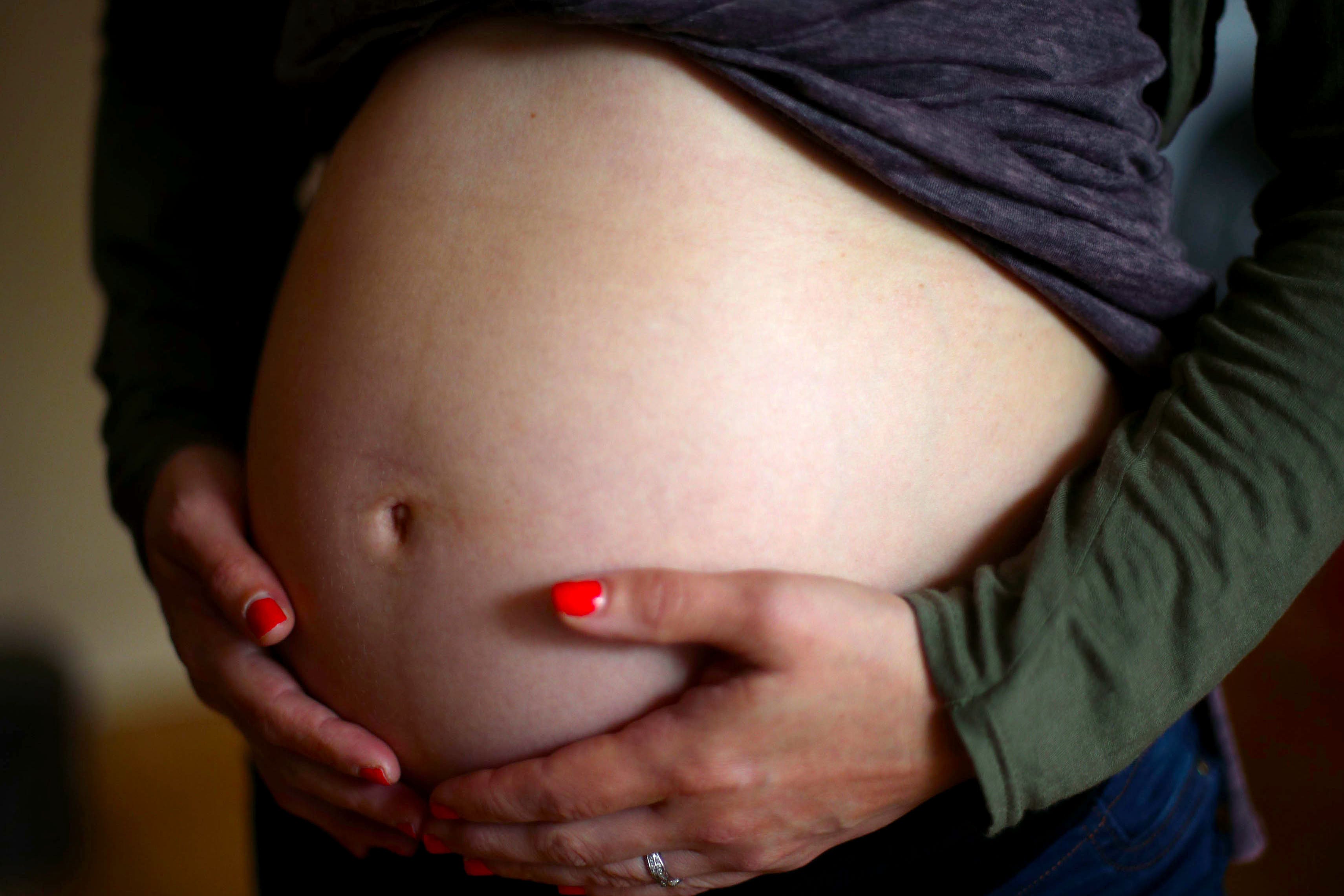Maternal deaths raise ‘further concern’ about ‘maternity systems under pressure’
Statistics released by MBRRACE-UK also highlighted ‘persisting inequalities’.

Your support helps us to tell the story
From reproductive rights to climate change to Big Tech, The Independent is on the ground when the story is developing. Whether it's investigating the financials of Elon Musk's pro-Trump PAC or producing our latest documentary, 'The A Word', which shines a light on the American women fighting for reproductive rights, we know how important it is to parse out the facts from the messaging.
At such a critical moment in US history, we need reporters on the ground. Your donation allows us to keep sending journalists to speak to both sides of the story.
The Independent is trusted by Americans across the entire political spectrum. And unlike many other quality news outlets, we choose not to lock Americans out of our reporting and analysis with paywalls. We believe quality journalism should be available to everyone, paid for by those who can afford it.
Your support makes all the difference.The number of women dying during pregnancy or soon after childbirth has reached its highest level in almost 20 years, according to data from a major UK study.
Experts said the figures raise “further concern” about maternity services and called for matters such as pre-pregnancy health and personalised care to be “prioritised as a matter of urgency”.
MBRRACE-UK, which conducts surveillance and investigates the causes of maternal deaths, stillbirths and infant deaths as part of the national Maternal, Newborn and Infant clinical Outcome Review Programme (MNI-CORP), said there were 13.41 deaths per 100,000 pregnancies reported from 2020 to 2022.
Today’s data showing a rise in maternal deaths is very worrying and adds to the overwhelming body of evidence that improving maternity safety for all needs to be at the top of the Government’s agenda
Excluding deaths from Covid-19 – which was the second most common cause – the maternal death rate for the period was 11.54 per 100,000.
This is up from 8.79 per 100,000 in 2017 to 2019.
The main cause of death in women who died during pregnancy or within six weeks of their pregnancy ending was thrombosis and thromboembolism, or blood clots in the veins.
Heart disease and deaths related to poor mental health were also common.
The figures were released ahead of the publication of the 2024 Saving Lives, Improving Mothers’ Care report.
The 2023 report, which was published in October, “identified clear examples of maternity systems under pressure”, according to Professor Marian Knight, director of the National Perinatal Epidemiology Unit and MBRRACE-UK maternal reporting lead.
She added that the latest “increase in maternal mortality raises further concern”.
“Ensuring pre-pregnancy health, including tackling conditions such as overweight and obesity, as well as critical actions to work towards more inclusive and personalised care, need to be prioritised as a matter of urgency now more than ever,” Professor Knight said.
The maternal death rate among black women decreased slightly compared to 2019 to 2021, although black women remained three times more likely to die compared to white women.
Dr Nicola Vousden, co-chair of the Faculty of Public Health Women’s Health Specialist Interest Group, said: “Persisting inequalities by ethnicity and socioeconomic status indicate that we must think beyond maternity care to address the underlying structures that impact health before, during and after pregnancy, such as housing, education and access to healthy environments.”
Clea Harmer, chief executive of bereavement charity Sands, said: “Today’s data showing a rise in maternal deaths is very worrying and adds to the overwhelming body of evidence that improving maternity safety for all needs to be at the top of the Government’s agenda.
Persisting inequalities by ethnicity and socioeconomic status indicate that we must think beyond maternity care to address the underlying structures that impact health before, during and after pregnancy
“We know that news like this can be distressing for anyone who has been affected by pregnancy or baby loss, particularly those who are pregnant again, and especially so if they are in a higher risk group.
“Sands is here to offer support to anyone affected by pregnancy or baby loss, however recently or longer ago they were bereaved.”
An NHS England spokesman said: “While the NHS has made significant improvements to maternity services over the last decade, we know further action is needed to improve the experiences of women and their families across the country and so investment has increased to £186 million annually to grow its maternity workforce, strengthen leadership and improve culture.
“The NHS has also introduced maternal medical networks and specialist centres, which are a vital step in improving the identification and management of potentially fatal medical conditions in pregnancy, wherever a woman receives care, and to ensure England continues to improve in its position as one of the safest countries in the world to give birth.
“Every local health system now also has a specialist community perinatal mental health team, and the NHS recently published guidance to ensure GPs carry out a comprehensive postnatal check-up six to eight weeks after women give birth covering a range of topics such as mental health and physical recovery.”
A Department of Health and Social Care spokesperson said: “Any death linked to childbirth is a tragedy, and we’re committed to ensuring all women receive safe and compassionate care from maternity services, regardless of their ethnicity, location or economic status.
“To improve maternity care, last year NHS England published a three-year plan to make maternity and neonatal care safer and more equitable.”